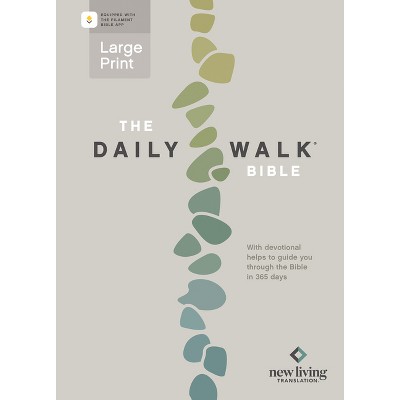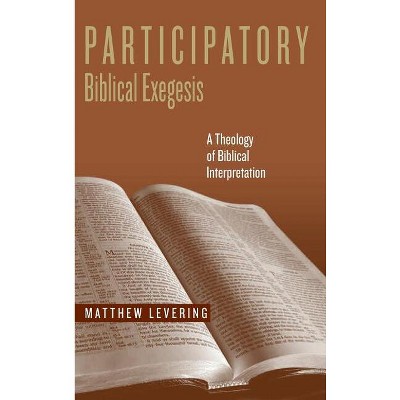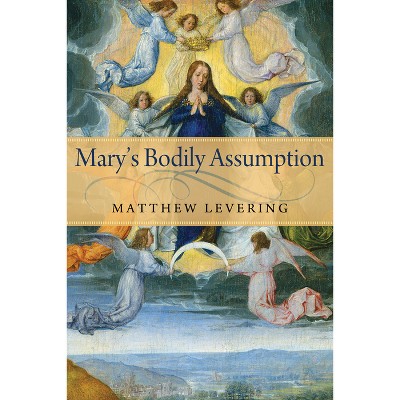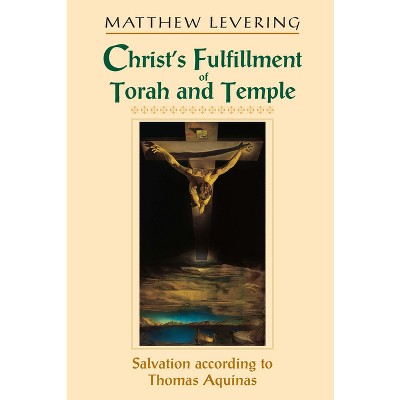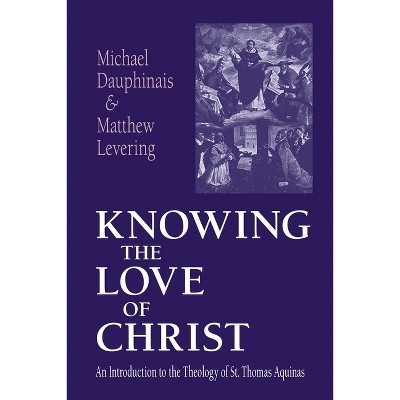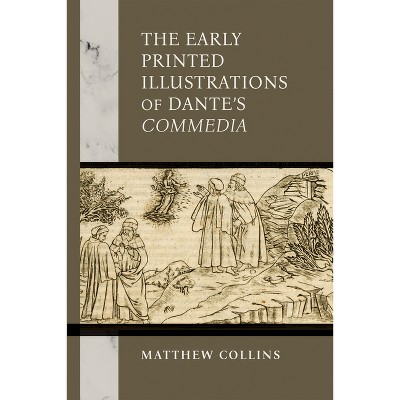Sponsored

Aquinas's Eschatological Ethics and the Virtue of Temperance - by Matthew Levering
In Stock
Sponsored
About this item
Highlights
- Matthew Levering offers a biblical and Thomistic portrait of the cardinal virtue of temperance and its allied virtues, in dialogue with an ecumenical range of theologians and scholars.In Aquinas's Eschatological Ethics and the Virtue of Temperance, Levering argues that Catholic ethics make sense only in light of the biblical worldview that Jesus has inaugurated the kingdom of God by pouring out his spirit.
- About the Author: Matthew Levering is the James N. Jr. and Mary D. Perry Chair of Theology at Mundelein Seminary and co-director of the Chicago Theological Initiative.
- 446 Pages
- Religion + Beliefs, Christian Theology
Description
About the Book
"In Aquinas's Eschatological Ethics and the Virtue of Temperance, Matthew Levering argues that Catholic ethics make sense only in light of the biblical worldview that Jesus has inaugurated the kingdom of God by pouring out his spirit. Jesus has made it possible for us to know and obey God's law for human flourishing as individuals and communities. He has reoriented our lives toward the goal of beatific communion with him in charity, which affects the exercise of the moral virtues that pertain to human flourishing. Without the context of the inaugurated kingdom, Catholic ethics as traditionally conceived will seem like an effort to find a middle ground between legalistic rigorism and relativistic laxism, which is especially the case with the virtue of temperance, the focus of Levering's book. After an opening chapter on the eschatological/biblical character of Catholic ethics, the ensuing chapters engage Aquinas's theology of temperance in the Summa theologiae, which identifies and examines a number of virtues associated with temperance. Levering demonstrates that the theology of temperance is profoundly biblical, and that Aquinas's theology of temperance relies for its intelligibility upon Christ's inauguration of the kingdom of God as the graced fulfillment of our created nature. The book develops new vistas for scholars and students interested in moral theology"--Book Synopsis
Matthew Levering offers a biblical and Thomistic portrait of the cardinal virtue of temperance and its allied virtues, in dialogue with an ecumenical range of theologians and scholars.
In Aquinas's Eschatological Ethics and the Virtue of Temperance, Levering argues that Catholic ethics make sense only in light of the biblical worldview that Jesus has inaugurated the kingdom of God by pouring out his spirit. Jesus has made it possible for us to know and obey God's law for human flourishing as individuals and communities. He has reoriented our lives toward the goal of beatific communion with him in charity, which affects the exercise of the moral virtues that pertain to human flourishing.
Without the context of the inaugurated kingdom, Catholic ethics as traditionally conceived will seem like an effort to find a middle ground between legalistic rigorism and relativistic laxism, which is especially the case with the virtue of temperance, the focus of Levering's book. After an opening chapter on the eschatological/biblical character of Catholic ethics, the ensuing chapters engage Aquinas's theology of temperance in the Summa theologiae, which identifies and examines a number of virtues associated with temperance. Levering demonstrates that the theology of temperance is profoundly biblical, and that Aquinas's theology of temperance relies for its intelligibility upon Christ's inauguration of the kingdom of God as the graced fulfillment of our created nature. The book develops new vistas for scholars and students interested in moral theology.
Review Quotes
"Following Aquinas's treatment of temperance in the Summa Theologiae, Levering covers shame, honestas, abstinence, sobriety, chastity, clemency, meekness, humility, and studiousness. For each virtue, Levering shows its scriptural foundations, and he examines what Aquinas has to say about the virtue. Along the way, we discover how deeply imbued in Scripture Aquinas truly was. The result is a masterful synthesis of what Aquinas and scriptural scholarship teach us about the virtue of temperance." --Journal of Moral Theology
"Growth in temperance constitutes the first baby steps in the moral/spiritual life. The current crisis within the Church, not to speak about Western civilization, is due in no small part to the denigration of this basic virtue. We are indebted to Levering for highlighting its centrality to life as transformed by the grace of Christ." --Nova et Vetera
"Levering does a marvelous job providing a work that, while scholarly in nature and tone, has a pastoral dynamic to it, empowering scholarship to play a transformative role. Levering's work is a welcome addition to any theological library; however, any institution with a historical affiliation with St. Thomas Aquinas or any of his works should consider this a critical addition to its collection." --Catholic Library World
"Thomas Aquinas's work encourages us to continue exploring points of contact and mutual collaboration between scientific, philosophical and theological understandings of ethics, of the human search for happiness. Levering's book is a valuable, thought-provoking, addition to that on-going mission." --New Blackfriars
"Matthew Levering examines temperance, a virtue many people might rather avoid than confront. Tempering our daily eating and drinking, our desires, our anger, and more, can seem impossible in contemporary context. Yet by deftly reflecting on scripture and Thomas Aquinas, Levering argues for multiple ways that practicing temperance leads us inexorably toward the kingdom of God." --Jana M. Bennett, author of Aquinas on the Web?
"Matthew Levering's Aquinas's Eschatological Ethics and the Virtue of Temperance is an extraordinary contribution to Thomistic moral theology and will now serve as the 'go to' book on temperance. The book is utterly scholastic in its modeling of grace perfecting nature, since it explains temperance as accessible to unaided human reason but also shows how temperance in the life of discipleship to Christ is utterly transformed by God's grace." --William C. Mattison III, author of Growing in Virtue
"Matthew Levering's study on temperance is an impressive tour through an enormous range of scholarship on the various aspects of this cardinal virtue and its relation to the biblical account of salvation history." --Patrick Clark, author of Perfection in Death
About the Author
Matthew Levering is the James N. Jr. and Mary D. Perry Chair of Theology at Mundelein Seminary and co-director of the Chicago Theological Initiative. He is the author or editor of over fifty-five books, including Mary's Bodily Assumption.
